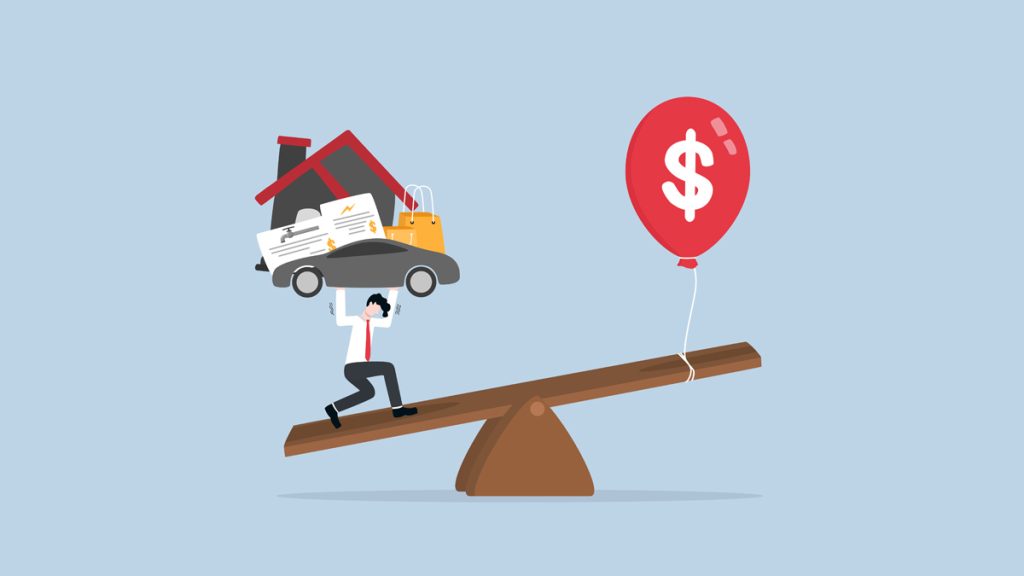Finances
What HCOL area means: it affects your life?
Do you live in a HCOL city or a LCOL city? If you have no idea what this means, read this article and we'll tell you. Note: this is important!
Anuncios
Living in an HCOL area: learn what it is and if you should live there or not

Even if you’re unfamiliar with the term HCOL, it can still have a significant impact on your life. That’s why it’s crucial to learn more about it before selecting a new home or determining whether you should relocate to a different neighborhood or city.
HCOL areas can also affect your business, so it’s important to determine if the location where you plan to establish your company is categorized as HCOL, LCOL, or MCOL. This classification can have an impact on the success or failure of your business. Keep reading to gain a better understanding of the meaning of HCOL.
High cost of living: definition of HCOL areas
The term HCOL stands for «High Cost Of Living,» which indicates that cities categorized as HCOL have higher prices for basic necessities required for a decent standard of living, such as housing, food, transportation, and essential household items.
If you plan to live in an HCOL city, you should expect to pay more in rent, transportation costs, and grocery bills, making it more challenging to save money. However, these cities often provide higher salaries, which can offset the higher expenses. The crucial factor to consider is the difference between your income and expenses.
Ultimately, the decision to live in an HCOL city should be based on the earning-to-cost ratio, allowing you to save more money. However, this decision is not always straightforward, and we’ll explain why in the following section.
Check if you are pre-approved for credit cards and loans with no impact to your credit score
Serás redirigido a otro sitio
Wanna live in an HCOL area? Learn all the benefits and also the disadvantages

It’s worth noting that the term HCOL can also refer to smaller regions within a city, such as different neighborhoods. When making a life-changing decision, it’s important to consider more than just the numbers.
Living in an HCOL area has its benefits and drawbacks, just like living anywhere else.
Now that you understand the meaning of HCOL, let’s take a closer look at some of these factors.
HCOLs tend to have higher salaries
Cities with the highest costs of living often offer some of the highest salaries as well. This is because income and cost of living are often interrelated. To live in a city with a high cost of living, individuals would need a higher salary to afford basic necessities.
Conversely, businesses may charge higher prices in these cities because they know people are earning higher wages. It’s a cycle that feeds into itself, creating a domino effect.
Academic opportunities
Tourist cities and large metropolises, such as capital cities and economic hubs, are among the top cities with the highest costs of living. These cities often offer a concentration of academic opportunities, such as higher education courses, lectures, seminars, and more.
Therefore, if you are looking to improve your academic skills and knowledge in your field of study, living in or near these major cities can be advantageous.
Cultural Exchange
Living in large metropolises can be culturally enriching since they attract people from all over the world. You can meet people from different cultures, which can expand your worldview.
Moreover, there are cultural events, such as tours by major dance, theater, and circus companies, and concerts by artists and bands from around the world.
Higher costs vs. business opportunities
Establishing a business in an HCOL area may come with increased expenses, but it can also lead to more opportunities and profits. It’s worth noting that HCOL areas often have higher average incomes, which translates to a larger market of people with the financial capacity to spend on your services or products.
A fast-paced lifestyle can lead to lower quality of life
While living in an HCOL area may offer more opportunities, it can also have negative impacts on your work-life balance. Big cities can be more dangerous, and commuting can consume a lot of time.
Although you may be earning more money, you might have less time to spend with your family and engage in leisure activities. It’s essential to consider this factor when deciding where you want to live.
Other options: LCOL and MCOL definition and benefits

Now that you understand the concept of HCOL, you may be wondering if there are alternatives. And, of course, there are! Alongside High Cost of Living (HCOL), there are also Low Cost of Living (LCOL) and Medium Cost of Living (MCOL) areas. But which is the best option for you?
The answer is subjective and dependent on your needs. However, we can provide some advantages and disadvantages of each type of area to help you make a decision that is right for you.
LCOL: benefits and disadvantages
An LCOL area stands for “Low Cost of Living.” It’s worth noting that a low-cost city does not necessarily mean it’s poor or disadvantaged. There are smaller towns or lesser-known cities that offer a low cost of living and a high quality of life.
These places have a more relaxed pace of life, giving you more time to enjoy your leisure activities. In an LCOL area, you can purchase a larger house for a lower price. However, your income may not be as high as it would be in an HCOL area, which could make it harder to save money.
MCOL: benefits and disadvantages.
Medium Cost of Living (MCOL) areas are in the middle ground in terms of benefits and disadvantages. They offer moderate costs, neither as high as HCOL areas nor as low as LCOL areas. While there are affordable options, they may not be as plentiful as in LCOL areas. Similarly, job opportunities and salaries are good but may not be as high as in HCOL areas.
If you prefer a balanced approach and have a hard time making decisions, choosing an MCOL area may give you peace of mind.
If you’re interested in learning more about credit scores and their impact on your life, we can assist you. Click on the link below to find out if a score of 785 is considered good or bad.

Is 785 a good credit score?
A 785 credit score can open many doors. But is it really a good thing to have this credit score? We'll give you some tips on this article to get an even better one.
Tendencias

Trucos para mantener un buen historial crediticio y mejorar tus finanzas
Mantén tu historial crediticio en buen estado con estos trucos simples y mejora tus finanzas sin complicaciones.
Continúe Leyendo
Consigue préstamos personales de hasta 30.000€ con PréstamoPro
Encuentra el préstamo perfecto para ti en PréstamoPro. Proceso 100% online, respuesta inmediata y sin papeleo complicado. ¡Infórmate ya!
Continúe LeyendoTarjeta Iberia Icon: acumula Avios más rápido y vuela mejor
La tarjeta Iberia Icon te da Avios, descuentos en vuelos, seguros incluidos y acceso a privilegios para tus viajes. ¡Conócela en detalle!
Continúe LeyendoTambién te puede interesar

Cómo crear un fondo de emergencia con poco dinero de forma fácil y práctica
Con poco dinero también se puede ahorrar: crea un fondo de emergencia con métodos prácticos y efectivos, sin complicarte!
Continúe Leyendo
Préstamo Personal BBVA: Cómo Solicitar Hasta 75.000 € de Forma Rápida y Online
Préstamo Personal BBVA: hasta 75.000 € a devolver en 8 años. Infórmate sobre intereses, requisitos y cómo solicitarlo fácilmente.
Continúe Leyendo
Conoce el Préstamo Rápido Avinto: De 50€ a 300€ en horas
¿Conviene pedir un Préstamo Rapido en Avinto? Te contamos los puntos clave de esta opción rápida y sin papeleo.
Continúe Leyendo